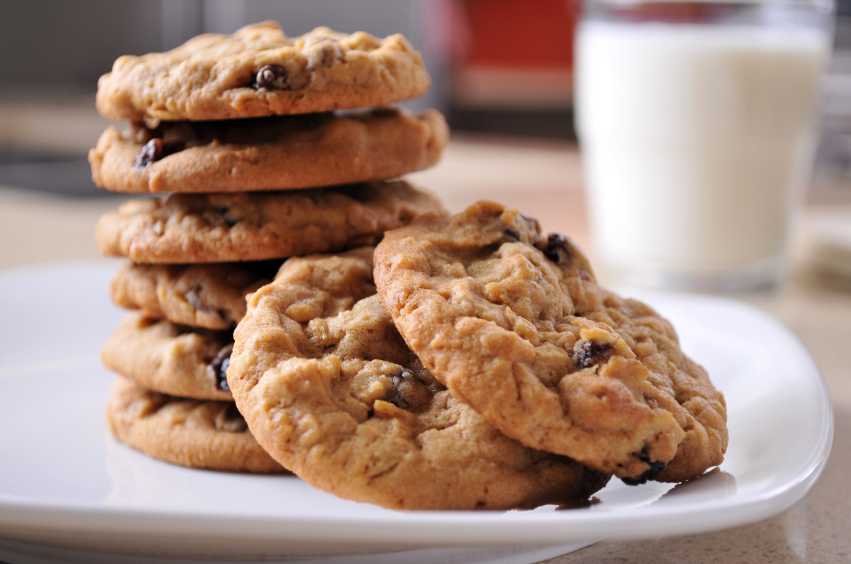The first time I remember eating emotionally, I was 16 and a freshman in Bible college. At the time I didn't know the term "emotional eating," but I was certainly doing my fair share of it.
In the meantime, I just knew that food was my new best friend. And worst enemy. It comforted me when I was alone in my dorm room on a Friday night. And it taunted me when my clothes didn't fit two months later. Soon I was on a binge/starve/binge rollercoaster that ultimately became more than a decade of disordered eating.

I never realized that my undiagnosed emotional eating was triggered by extreme loneliness. The more I ate, the larger I got, the more ashamed I felt, and the more I withdrew from other people. This was the opposite of what I needed. It would take some solid therapy 20 years later to figure that part out.
Loneliness and Cookies
God created us to live in relationships, first and foremost with Himself. No earthly relationships can replace the relationship for which we were divinely created. But He also created us with a desire to know and be known.
In their fascinating, though slightly heady book Loneliness: Human Nature and the Need for Social Connection, John T. Cacioppo and William Patrick report on an interesting study they did that involved loneliness and cookies. Specifically, they discovered through a controlled experiment that people who were set-up to experience social rejection ate twice as many cookies as people who were told everyone wanted to be friends with them.
Though part of the double-cookie-eaters' motivation was to comfort themselves with fatty/sugary foods (these types of foods positively impact the pleasure centers of the brain), the authors also noted that loneliness actually has a negative effect on powers of self-restraint. In short, when you're lonely, you're physiologically less inclined to "do the right thing," whether with food or with other choices you're making.
Is it any wonder, then, that Satan seems bent on pushing you away from relationships? As the father of lies, he is always at work, leading you away from community and into isolation where his lies have far greater power.
In my own recovery story, as well as the work I now do with women who struggle with food, this has been a common theme. Women who feel trapped by eating and weight problems are frequently handling their struggles in isolation, afraid to let anyone know just how big a struggle food is for them.
That is not to say that all of these women are socially disconnected; some have quite a few friendships. But when calculating loneliness, the question to ask is not "how many people do I know?" but rather, "how many people really know me?" Some people are veritable islands, with no one really knowing the true them. Others share vulnerably about certain areas and cover up the others that are too risky to reveal. It's easy to talk about feelings without talking about what's driving them, because many times you don't even know.
Food and Feelings
How are you feeling right now? Wait, before you answer that, words like stressed, busy, relaxed, or even fat don't count. These are circumstances, not feelings.
Are you feeling glad? Sad? Angry? Hurt? Guilty? Afraid? Ashamed? Lonely? These are the eight most common emotions. Unfortunately, people don't usually think in these terms, or even pause to consider emotions at all. But food and feelings are inexorably intertwined, which is why emotional eating is probably the most common type of eating issue people experience.
Whether triggered by loneliness, as in my story, or by another emotion, it's important to be aware of what you're feeling when you reach for food. Are you eating to comfort sadness? Or because you're afraid to say no? Are you happy and think food is necessary to celebrate? Or is your guilt over what you've eaten, or your shame about losing control, leading you to eat even more?
The problem with making food choices based on feelings is that your feelings tend to fluctuate. But one thing is for sure: If you eat emotionally, negative feelings will always follow. This is something to keep in mind when reaching for that food you don't really want.
Breaking the Cycle
In Galatians 5:1, Paul writes, "Christ has liberated us to be free. Stand firm then and don't submit again to a yoke of slavery." Whether you see it as slavery or not, emotional eating is a trap that keeps you in bondage. So how do you stand firm in your freedom? First, you must become aware of what you're feeling. The next and most powerful blow you can deal to the enemy is to refuse to isolate when you experience feelings that overwhelm you.
The reality is that if you're an emotional eater, you're anything but alone. So why not take advantage of the fact that others share your struggle and shift the conversation from what everyone's eating (or not eating) to why. That way, the next time Satan sneaks in with his lies, you can courageously tell him (and his cookies) where to go. Unless you really want them.
These days I'm grateful for this freedom and for the relationships that make it possible.
This article is courtesy of HomeLife Magazine.